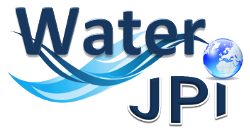SRIA 2025 Theme C - Water Value and Usage
The sustainable use and preservation of natural water resources is becoming more and more relevant in the face of population growth, climate change and urbanisation. As the population expands, demands on water, energy, food and ecosystems and geosystems are all set to significantly increase. Agricultural irrigation accounts for 70% of water use worldwide. Overabstraction of groundwaters has led to deficits in freshwater, the dropping of water tables and, in coastal areas, the introduction of saltwater intrusion, which degrades groundwater. This is exacerbated by climate change effects (drought and floods) and urbanisation. Ecosystems are also under threat, as many wetlands are in decline in terms of the services they provide. The reuse of water, particularly waste water, has been cited as an option to close the loop in terms of the circular economy. Putting a price on water increases its value. However, it can also exclude marginalised or vulnerable groups in terms of access to water. Research outcomes in this theme can lead to new ways of thinking and technological developments that contribute to improving water and waste water quality and mitigating negative impacts through better processes and better data. This is required to generate a real circular economy market. New concepts to balance conflicting goals are beneficial, for example water as a resource for human needs/infrastructure versus biodiversity and ecosystem functions. This would help create a more water-wise and water-smart society.
There are considerable knowledge gaps in the reuse of treated water and the impact on water quality. Both the Urban Waste Water Treatment Directive and the WFD promote the reuse of treated water whenever appropriate. There is, however, no EU legislation to specify the conditions for water reuse. In 2018, the EC proposed new legislative measures to incentivise the reuse of treated water while maintaining a high level of health (for both humans and the environment). This proposal builds on the 2015 Circular Economy Action Plan. To achieve this vision, improvements in technologies and materials as well as the development of new inclusive governance models and “living laboratory” pilots need to be advanced. Additional research is required to identify conditions under which reuse is not generating new environmental and health risks (greater dispersion in ecosystems of medical contaminants for instance). Governance issues need to be analysed in terms of critical analyses of the potential negative impacts of such technologies. Research in this theme can contribute to policy development, particularly for the implementation of the Drinking Water Directive, the WFD, the Urban Waste Water Treatment Directive, the EU Scarcity and Droughts Strategy and the EU proposal for regulations on water reuse. Research outcomes should serve to influence and adapt policies, and develop and enforce regulations and directives to enable water reuse technologies and improved associated governance structures. There is also a need to seek better alignment between public preferences and necessary changes (though this does not only imply increased public acceptance).
Theme C is composed of:
Sub-theme C.1: Future-proof water technologies, infrastructures and systems for developing climate change resilience
Sub-theme C.2: Water-smart circular economy and societies
Sub-theme C.3: Empowering the public, water users and stakeholders in valuing water
